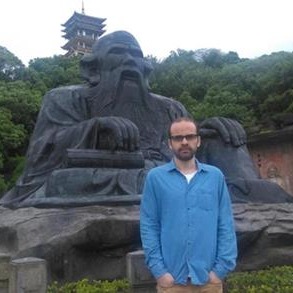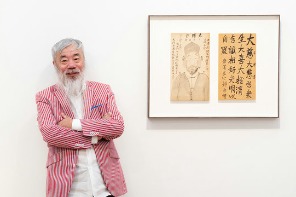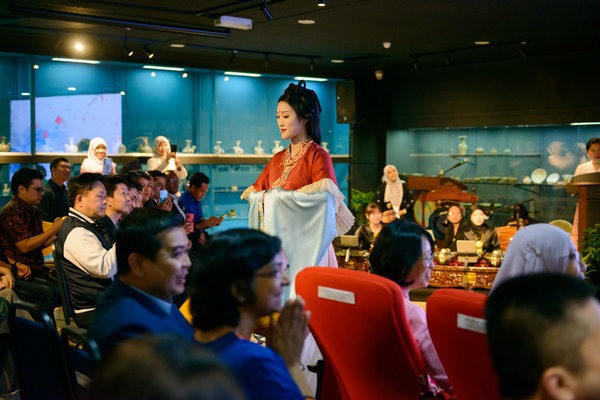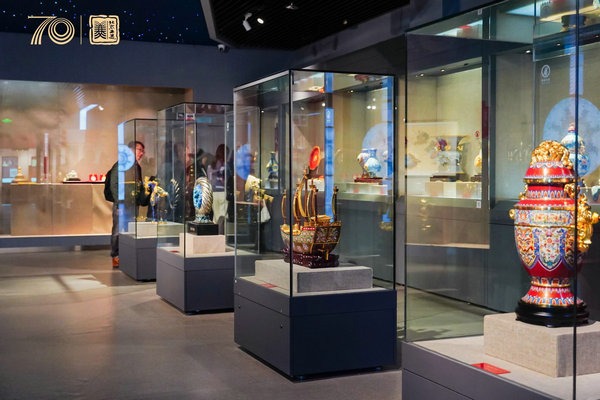Mainstream Chinese philosophies present a different image of China to the world


Q: You have studied Chinese ancient philosophy for many years. What do you think of Confucianism's value in today's society?
A: In contemporary society, whether at the level of people or countries, there is a powerful trend toward viewing the world only in instrumental or material terms, such as the concept of "human resources" in which people are equated to material or financial resources to be utilized for maximum gain, not in terms of human relationships such as families, colleagues, and friends, which leads to dehumanization, loss of ethical values, alienation, etc.
While this is often associated with Western modernity and capitalism, as analyzed by philosophers such as Karl Marx and Herbert Marcuse, a quite similar situation occurred in Ancient China with the decline of the Zhou Dynasty and the "collapse of ritual and music" in the Spring and Autumn (770-476 BC) and Warring States (475-221 BC) periods, in which many of the Chinese ruling classes (kings, ministers, etc.) began to view the world simply in terms of "benefit" for themselves and their states, and similar crises recurred throughout Chinese history, e.g. at the end of the Han Dynasty (206 BC-AD 220).
Much of the classic Confucian thought of Confucius, Mencius, Zhu Xi, Wang Yangming, etc. was an attempt to respond to such a crisis by promoting humanistic values such as benevolence, righteousness, propriety, wisdom, and trustworthiness, restoring a focus on the moral and ethical aspects of human nature, such as Mencius' focus on cultivating our inherent moral instincts and Wang Yangming's "extension of innate moral knowing". Since many problems in modern society are comparable to this situation, Confucianism can have an important role to play in addressing these issues.
Q: What are the similarities between Western and Chinese philosophy?
A: Superficially, there are many differences between the two, such as Western philosophy's focus on logical argument and abstract problems detached from human life as opposed to Chinese philosophy's focus on holistic understanding and social questions.
However, I think if we look at how the two traditions emerged, we can see a fundamental common approach shared between them. Both developed at a similar period in human history (Jaspers' so-called "Axial Age") when Zhou Dynasty China and Ancient Greece saw a decline of traditional state-religious forms of society, and when economic growth and technological advances led to a social crisis: how can a rapidly changing society achieve lasting order, harmony, and stability?
As Jean-Pierre Vernant argued, like early Chinese thought, Greek philosophy developed its cosmologies and ontologies against this background, seeking a "new image of the world" through a human-centered approach in which people take the initiative in collectively structuring human existence and understanding and resolving social problems.
Both Western and Chinese philosophical traditions emphasize the importance of openness and dialogue, and strive to attain a "cosmic" plane that transcends individual interests and prejudices, "seeing things from the perspective of the Dao" in Zhuangzi, and grasping the common "logos" of the world in Greek thought. They also both connect this to building a human community of equal "friends" where such openness and dialogue can take place, where civilized human beings can work towards achieving basic consensus in our common social life.
Q: In your opinion, how would spreading Chinese philosophy contribute to building a community with a shared future?
A: Two of the biggest problems we face today are the apparent lack of serious dialogue on values at the global level. In this regard, China's portrayal in much Western media all too often fits into the latter narrative, focusing on increased material wealth and military power, strategic and pragmatic realpolitik, etc. While these aspects are present in some traditional Chinese philosophy, particularly from the Warring States period (e.g. Sunzi's Art of War, the Legalism of Shang Yang and Han Feizi, etc.), the mainstream Chinese philosophies of Confucianism, Taoism and Buddhism can all present a quite different image of China, one that implies strong ethical and political positions on various contemporary issues, can engage with the global community on issues facing humanity as a whole (climate change, poverty, war, pollution, etc.), and contribute a Chinese perspective to forming a global consensus on basic norms and rules.
Q: Could you give some advice on promoting Chinese philosophy internationally?
A: Although there has been some progress in this regard, we still need to work on overcoming outdated prejudices concerning "Chinese philosophy" in the West, especially the view that it is more of a "spiritual tradition" than "serious philosophy".
All too often the view of Chinese philosophy as an organic part of "Chinese traditional culture" doesn't help in this respect, since it can give the impression that Chinese philosophy is a museum-piece that is only of historical interest, rather than a diverse group of approaches that can provide important perspectives on contemporary philosophical problems.
In promoting Chinese philosophy, it is important to understand the various trends in Western engagement with Chinese thought in modern history, e.g. Leibniz and early understandings of Confucianism, spiritual approaches to Taoism and Buddhism in Western mysticism, Martin Heidegger's engagement with Taoism, synthetic approaches to Confucianism and American pragmatism, and recent interest in virtue ethics. This can show that Chinese philosophy is an "open tradition" that can be connected with other philosophical traditions through many different paths.
Q: In your opinion, how would Generation Z better participate in inheriting, innovating and developing traditional Chinese culture and global ideologies?
A: Clearly, improved communication makes it now much easier for young students to engage with international perspectives on Chinese culture, and they tend to have fewer negative prejudices and more curiosity about traditional Chinese culture and other world cultures.
One positive example of this is the increased interest in comparative studies on specific historical periods such as those between the Han Dynasty and the Roman Empire, which can uncover important commonalities beyond simple dualistic oppositions between "China" and "the West".
It is important for young students to see that there are many serious debates and arguments about how to understand Chinese and other traditional cultures, and many of these arguments concern issues with vital contemporary relevance, such as those between conservatism and progressivism, cultural uniformity and diversity, authority and liberality, nationalism and internationalism, etc. Despite all the changes in modern society, students need to know how problems in traditional societies in many ways mirror those we face today.
Q: How do you think the Nishan Forum will promote Chinese philosophy internationally?
A: Forums such as the Nishan Forum are usually an excellent opportunity for scholars and others with an interest in Chinese philosophy from around the world to gather and share their ideas, as well as making contacts and connections.
Obviously the ongoing Covid situation has limited this possibility this year, but such forums can still have an impact through the publication of related books and journals, as well as the attention they bring through the media.
Given the still limited acceptance of Chinese philosophy in Western philosophy departments, it is important for Western philosophy circles to be aware of the range and depth of debates in contemporary Chinese philosophy, and to see possibilities for collaborative and comparative projects in future. There has been some progress on this in recent years, and hopefully it will only increase in future.





































